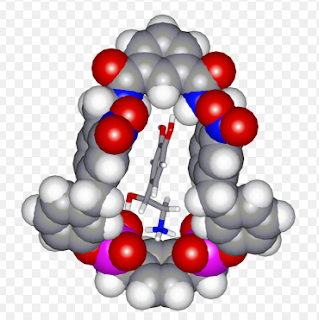Catecholamines in Urine
Monday, 15 April 2013
A test for catecholamines measures the amount of the hormones epinephrine, norepinephrine, metanephrine, and dopamine in the urine. These catecholamines are made by nerve tissue camera, the brain, and the adrenal glands. Catecholamines help the body respond to stress or fright and prepare the body for "fight-or-flight" reactions.
The adrenal glands camera make large amounts of catecholamines as a reaction to stress. The main catecholamines are epinephrine (adrenaline), norepinephrine (noradrenaline), and dopamine. They break down into vanillylmandelic acid (VMA) and metanephrine, which are passed in the urine.
Catecholamines increase heart rate, blood pressure, breathing rate, muscle strength, and mental alertness. They also lower the amount of blood going to the skin and increase blood going to the major organs, such as the brain, heart, and kidneys.
Certain rare tumors (such as a pheochromocytoma) can increase the amount of catecholamines in the blood and urine. The increased amount can cause high blood pressure, excessive sweating, headaches, fast heartbeats (palpitations), and tremors.
Why It Is Done
A catecholamine test is done to help diagnose a tumor in the adrenal glands called a pheochromocytoma.
How To Prepare
You may be asked to avoid the following foods and fluids for 2 to 3 days before having this test:
Caffeine, such as coffee, tea, cocoa, and chocolate
Amines. These are found in bananas, walnuts, avocados, fava beans, cheese, beer, and red wine.
Any foods or fluids with vanilla
Licorice
Aspirin
Do not use tobacco at all during the 24-hour urine collection.
Be sure to keep warm during the 24-hour urine test because being cold can increase your catecholamine levels.
Drink plenty of fluids during the 24-hour time period to avoid dehydration.
Many medicines may change the results of this test. Be sure to tell your doctor about all the nonprescription and prescription medicines you take.
Your doctor may ask you to stop certain medicines, such as blood pressure medicines, before the test. Do not take cold or allergy remedies, including aspirin, or nonprescription diet pills for 2 weeks before the test.
Talk to your doctor about any concerns you have regarding the need for the test, its risks, how it will be done, or what the results will mean. To help you understand the importance of this test, fill out the medical test information form.
How It Is Done
24 hour urine sample
You start collecting your urine in the morning. When you first get up, empty your bladder but do not save this urine. Write down the time that you urinated to mark the beginning of your 24-hour collection period.
For the next 24 hours, collect all your urine. Your doctor or lab will usually provide you with a large container that holds about 1 gal (4 L). The container has a small amount of preservative in it. Urinate into a small, clean container and then pour the urine into the large container. Do not touch the inside of the container with your fingers.
Keep the large container in the refrigerator for the 24 hours.
Empty your bladder for the final time at or just before the end of the 24-hour period. Add this urine to the large container and record the time.
Do not get toilet paper, pubic hair, stool (feces), menstrual blood, or other foreign matter in the urine sample.
How It Feels
There is no pain while collecting a 24-hour urine sample.
Risks
There is no chance for problems while collecting a 24-hour urine sample.
What Affects the Test
Reasons you may not be able to have the test or why the results may not be helpful include:
Doing physical exercise.
Having extreme emotional stress.
Having surgery, injury, or illness.
Taking certain medicines, such as aspirin, nitroglycerin, tricyclic antidepressants, tetracycline, theophylline, or some blood pressure medicines.
Using nicotine, alcohol (ethanol), or cocaine.
Taking nonprescription cough, cold, or sinus medicines.
Eating or drinking foods with caffeine.
What To Think About
The 24-hour urine test is better for finding high levels of catecholamines than a blood test. For more information on a catecholamine blood test, see the topic Catecholamines in Blood.
Subscribe to:
Post Comments (Atom)

0 comments:
Post a Comment